The start of the year usually comes with a lot of expectations. For some individuals, New Year resolutions are made to guide them through the year and goals set to show progress filed
For companies, targets are laid out and strategic direction worked out
CEOs are then tasked by the board to drive their companies to achieve these set targets with the right strategy and deliver results that show growth
The year 2018 will not be any different. With two months gone, CEO’s are looking to the next 10 months to deliver the promised results.
However, it will be a tough year for some of them. TrumpetNews today brings you the CEO’s in the hot seat.
These, will have a tumultuous time delivering projections based on the current trends and consideration made for the political, economic and legislative direction Uganda is currently headed for. We list the CEOs in the hot seat.
Robert Kabushenga; He is the Vision Group CEO. Vision Group is Uganda’s leading Media Empire and controls over 50% of the Country’s media space.
With over 5 radio stations, two daily newspapers, 3 weeklies, three television stations and many monthly magazines, Kabushenga will have a tough job warding off competition from NBS, NTV, Red Pepper, Daily Monitor and other media houses that are slowly picking market share with their aggressive turn-around of audiences .
Last year, Vision Group’s profitability across the board shrunk to just about 700 million from over 2 billion the previous year.
As a listed company, the pressure from shareholders and government will mount on Robert to keep the top spot in the business while delivering good dividends, keeping them afloat and growing the company’s assets.
But with falling copy sales from New Vision which is now pegged at just 23,000 copies up from 38,000 years ago and Bukedde TV losing the top tv slot to NTV and their sister station Spark, Kabushenga is clearly in hot soup.
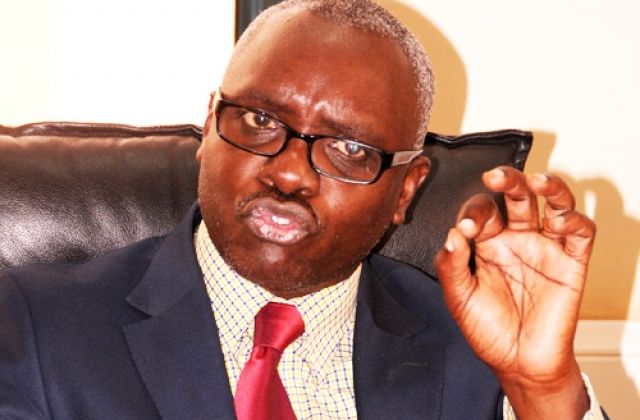
Prof. Emmanuel Tumusiime Mutebile-Governor BOU; Bank of Uganda is charged with the country’s financial direction.
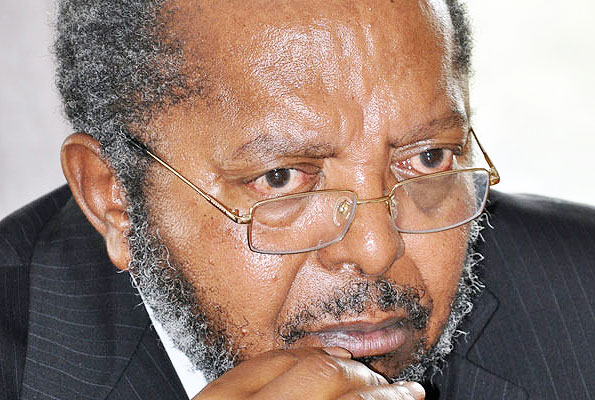
But with growing inflation and the shilling continuing to lose ground to the dollar, the Euro, the Pound and other major currencies, plus a growing Central Bank Rate (CBR),a declining Gross Domestic Product (GDP), Mutebile will have sleepless nights this year. He will have to position the shilling to stand firm and remain competitive while keeping inflation low and the banking sector one that the public will embrace for business growth.
Juma Kisaame-DFCU bank; Dfcu bank jumped position to become the top performing bank in Uganda last year after Crane Bank’s closure and DFCU bank’s take-over of the entity, garnering millions of bank accounts, branches across the country and other operational advantages accruing from the new addition.

But, already, Crane Bank’s former owners have slapped DFCU with a 32bn rental bill for the over 45 branches that DFCU inherited with the take-over of Crane Bank.
Also, Crane Bank had a horde of bad debts and unrecovered loans that DFCU needs to work upon to keep in the game. All these, plus other issues like low credit uptake and increasing competition, rising CBR and local interest rates, a faltering economy that doesn’t return quick profits will keep Juma Kisaame on his toes.
Richard Tusiime; The Red Pepper; After a one week stint at Nalufenya High Level Detention Centre and later Luzira Prison between November and December 2017, Richard and his fellow Directors James Mujuni, Patrick Mugumya, Johnson Musinguzi and Arinaitwe Rugyendo must be frustrated men with worries about the prospects of 2018.
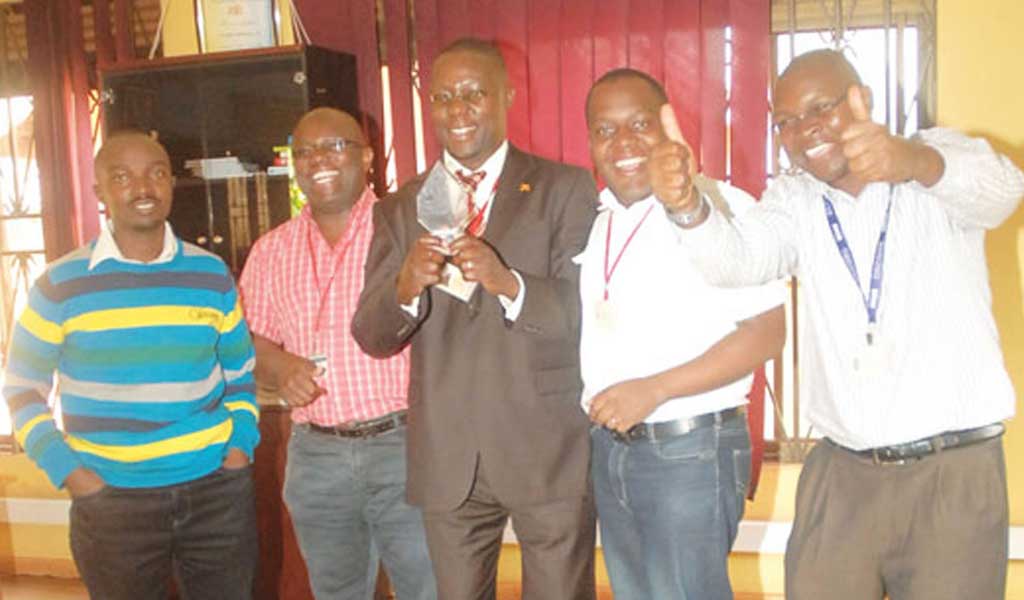
Red Pepper was re-opened after nearly 3 months of no business. The paper’s offices were raided and closed off by police on November 19th 2017 for a story government deemed scandalous and threatened regional peace.
With staffing of over 250 workers, wages to pay, complaining advertisers and loss of revenue of over 4billion from copy sales over the three months, Red Pepper will need a lot of pushing to get back to the glory days.
Back on the streets with a printing bill from Vision Group, the diversion of their printing to another printer since their factory is still un-operational, RP must be feeling the pinch.
Their other daily publication-Kamunye and regional papers like Entatsi, are not on the streets yet. This, coupled with Juice Fm’s off-air status, Tusiime will have to fold his sleeves to get out of the mire his media house is in.
Tony Glencross- NMG/Daily Monitor; The Nation Media Group is East Africa’s biggest media empire with print, broadcast, digital and technology establishments across four of EA’S nations.

In Uganda, Tony Glencross who crossed from rival Vision Group where he was he head of sales landed at NMG as Managing Director.
Tasked with growing The Daily Monitor newspaper, Weekly Luganda Enyanda, Radio Stations KFM and Dembe FM, Tony has an arduous task ahead of him for 2018.
With dwinding copy sales, Daily Monitor has slumped to 18,000 up from over 28,000 copies 7 years ago while KFM is still struggling against Capital Radio and younger, fresher radio stations like Radio City.
However with NMG’s media convergence strategy that unfortunately saw some staff lose their jobs, NMG will be aligning for a tougher onslaught on their rivals.
Tony will have to keep the fighting spirit going if he is to make any headway in 2018.
Mark Ocitti- Uganda Breweries; Beer is big business in Uganda. But it is also competitive. With the country’s capitalist approval, players and importers with better, soundly priced alcoholic drinks continue to flood the market making it hard for UBL to keep top spot.

Mark Ocitti who joined the EABL owned brewery from Shell Kenya, comes at a time when Uganda Breweries is taking the biggest beat-up from Nile Breweries who have re-positioned their flagship Nile Special that is doing better than their rival’s Bell, plus others like Heineken who continue to add on their premium portfolio with new products like Amstel eating into UBL’s premium segment market.
Last year, EABL’s profitability fell from the previous years, with rising operational costs and falling market share in Uganda being among the top reasons for the trend.
Mark will have to get his house in order if he has to keep 2018 a good year for him and his team at Luzira, stress-free.
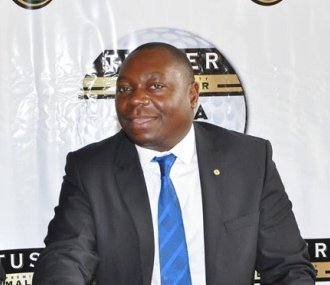
Johnson Omollo-General Manager NTV– NMG’s biggest profitability from the group business in Uganda has for years been picked from their television station-NTV. The group infact went ahead to dispel research that discovered that the luganda, low-level speaking audiences were too little to be targeted for another television with the set-up of Spark TV. The gamble is slowly paying off. The new luganda tv from the group is already in 4th position in terms of viewership.
With continued staff flight to competitors like NBS, Omollo will need to re-align the team to keep NTV as the number one station and keep advertisers willing to place their brands on his station.

Dr. Kato Ssebale- CEO Case Clinic- 2018 started off on a sad note for the respected medical facility. Days into the New Year, Dr. Ssebale had to contend with the kidnap and gruesome murder of long-serving accountant Francis Ekulangar whose charred body was dumped in Kajjansi, also taking the 15m he was on his way to deposit on the clinic’s bank accounts.
Weeks later, the death of Uganda’s leading Vocalist Mozey Radio who was rushed to Case’s ICU section and passed on days later at the facility that broke the camel’s back. Hordes of disappointed Ugandans were up in arms claiming the hospital was allegedly ‘negligent’
Dr. Ssebale will have to do a lot of clean cut public relations campaigns to undo the damage some of the unfortunate happenings that have befallen his Case Clinic to be erased from public memory. It will sure be a tough 2018 for the trained doctor.
Other CEOs who will have a ‘scorching’ 2018 but with lesser pressure include;
Patrick Mweheire – Stanbic Bank– Keep the Standard Bank Owned entity profitable while maintaining market share in a country where over 90% of the population is unbanked isnt an easy task. Stanbic bank had a good 2017 turning in considerable profit. However, 2018 will be one tough one with renewed competition from a renamed Barclays and the pressure to keep at the top.
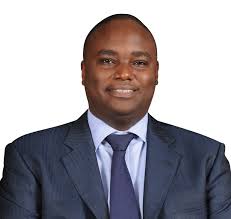
Zen Annous- Africell– After 3 years of operation having taken over Orange Telecom’s liabilities and fortunes, it is now time for Zen to deliver after spending billions in marketing and creative strategies that have gotten the two top industry leaders Airtel and MTN working hard.

Wim Vanhelleputte-MTN– As telecom market leaders, MTN’s number one position has always been guaranteed until a revamped Airtel with new strategy and creative niche audience marketing tactics got closer. Wim and his team have also had a horde of public complaints over their ‘fast depleting data’ and other issues like failing mobile money that gets them cornered. Wim will have to deliver a killer strategy to keep his brands in the number one position.

VG Somasekhar- Airtel Uganda CEO– Soma returned to Uganda as Managing Director for a second stint at Airtel having left in 2014. He is especially remembered for leading Airtel Uganda from December 2010 to February 2014, during which period he oversaw the Airtel-Warid merger – the first telecom merger in Uganda and the most successful one across Africa. But with growing competition from rivals MTN and an enlightened market that demands more for less, Soma will have to keep his sleeves folded if Airtel is to stay profitable seeing that the giant telecom turned in profit for the first time in many years in Uganda last year.
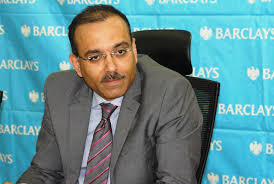
Rakesh Jha-Barclays Bank (Now Absa) CEO– Rakesh Jha’s international banking career began in his native India, and then took him to Dubai, Mauritius and Seychelles before he took on his current role as CEO of Barclays Bank Uganda in September 2014.
With all that experience, it is presumed Rakesh will be able to meddle through the tough times ahead as his bank which was recently taken over by SA’s ABSA plans to roll-out the renaming campaign and winning the trust of their millions of doubting customers who are uncomfortable with the sale-off and name change





